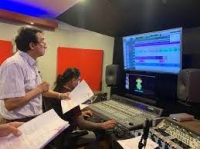Latest Sheet Music
Schubert

Franz Peter Schubert (January 31, 1797 – November 19, 1828) was an Austrian composer. He wrote some 600 lieder, nine symphonies (including the famous "Unfinished Symphony"), liturgical music, operas, and a large body of chamber and solo piano music. He is particularly noted for his original melodic and harmonic writing.
While Schubert had a close circle of friends and associates who admired his work (including his teacher Antonio Salieri, and the prominent singer Johann Michael Vogl), wider appreciation of his music during his lifetime was limited at best. He was never able to secure adequate permanent employment, and for most of his career he relied on the support of friends and family. Interest in Schubert's work increased dramatically in the decades following his death and he is now widely considered to be one of the greatest composers in the Western tradition.
While he was clearly influenced by the Classical sonata forms of Beethoven and Mozart (his early works, among them notably the 5th Symphony, are particularly Mozartean), his formal structures and his developments tend to give the impression more of melodic development than of harmonic drama. This combination of Classical form and long-breathed Romantic melody sometimes lends them a discursive style: his 9th Symphony was described by Robert Schumann as running to "heavenly lengths". His harmonic innovations include movements in which the first section ends in the key of the subdominant rather than the dominant (as in the last movement of the Trout Quintet). Schubert's practice here was a forerunner of the common Romantic technique of relaxing, rather than raising, tension in the middle of a movement, with final resolution postponed to the very end.
While Schubert had a close circle of friends and associates who admired his work (including his teacher Antonio Salieri, and the prominent singer Johann Michael Vogl), wider appreciation of his music during his lifetime was limited at best. He was never able to secure adequate permanent employment, and for most of his career he relied on the support of friends and family. Interest in Schubert's work increased dramatically in the decades following his death and he is now widely considered to be one of the greatest composers in the Western tradition.
While he was clearly influenced by the Classical sonata forms of Beethoven and Mozart (his early works, among them notably the 5th Symphony, are particularly Mozartean), his formal structures and his developments tend to give the impression more of melodic development than of harmonic drama. This combination of Classical form and long-breathed Romantic melody sometimes lends them a discursive style: his 9th Symphony was described by Robert Schumann as running to "heavenly lengths". His harmonic innovations include movements in which the first section ends in the key of the subdominant rather than the dominant (as in the last movement of the Trout Quintet). Schubert's practice here was a forerunner of the common Romantic technique of relaxing, rather than raising, tension in the middle of a movement, with final resolution postponed to the very end.
Franz Schubert

Franz Peter Schubert (German pronunciation: ; January 31, 1797 – November 19, 1828) was an Austrian composer. He wrote some 600 Lieder, nine symphonies (including the famous "Unfinished Symphony"), liturgical music, operas, some incidental music, and a large body of chamber and solo piano music. He is particularly noted for his original melodic and harmonic writing.
Schubert was born into a musical family, and received formal musical training through much of his childhood. While Schubert had a close circle of friends and associates who admired his work (amongst them the prominent singer Johann Michael Vogl), wide appreciation of his music during his lifetime was limited at best. He was never able to secure adequate permanent employment, and for most of his career he relied on the support of friends and family. He made some money from published works, and occasionally gave private musical instruction. In the last year of his life he began to receive wider acclaim. He died at the age of 31 of "typhoid fever", a diagnosis which was vague at the time; several scholars suspect the real illness was tertiary syphilis.
Interest in Schubert's work increased dramatically in the decades following his death. Composers like Franz Liszt, Robert Schumann and Felix Mendelssohn discovered, collected, and championed his works in the 19th century, as did musicologist Sir George Grove. Franz Schubert is now widely considered to be one of the greatest composers in the Western tradition.
Schubert was born into a musical family, and received formal musical training through much of his childhood. While Schubert had a close circle of friends and associates who admired his work (amongst them the prominent singer Johann Michael Vogl), wide appreciation of his music during his lifetime was limited at best. He was never able to secure adequate permanent employment, and for most of his career he relied on the support of friends and family. He made some money from published works, and occasionally gave private musical instruction. In the last year of his life he began to receive wider acclaim. He died at the age of 31 of "typhoid fever", a diagnosis which was vague at the time; several scholars suspect the real illness was tertiary syphilis.
Interest in Schubert's work increased dramatically in the decades following his death. Composers like Franz Liszt, Robert Schumann and Felix Mendelssohn discovered, collected, and championed his works in the 19th century, as did musicologist Sir George Grove. Franz Schubert is now widely considered to be one of the greatest composers in the Western tradition.
Jason Mraz
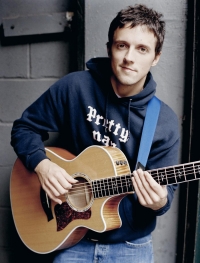
Jason Thomas Mraz (born June 23, 1977) is a singer-songwriter, born and raised in Mechanicsville, Hanover County, Virginia, a suburb of Richmond.
Mraz is an eclectic artist with multiple and varied stylistic influences, including pop, rock, folk, jazz, and hip hop. He has played with various artists, including The Rolling Stones, Bob Dylan, Dave Matthews Band, James Blunt, Gavin DeGraw, Paula Cole, John Popper, Alanis Morissette, The Ohio Players, Rachael Yamagata, James Morrison, Jewel and Colbie Caillat.
Mraz is an eclectic artist with multiple and varied stylistic influences, including pop, rock, folk, jazz, and hip hop. He has played with various artists, including The Rolling Stones, Bob Dylan, Dave Matthews Band, James Blunt, Gavin DeGraw, Paula Cole, John Popper, Alanis Morissette, The Ohio Players, Rachael Yamagata, James Morrison, Jewel and Colbie Caillat.
Willem Ten Have
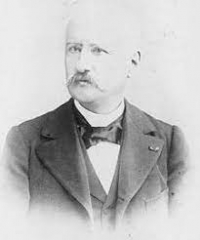
Willem Ten Have was born 12 August, 1831 in Amsterdam, Holland to Francois TenHave and Anna Cornelia Veelwaard, the youngest of 6 children.He was a student of Charles De Bériot, becoming a famous violinist in Europe. (Ten Have later bought two violins from De Bériot, one being the famous Guarnari del Jesu De Bériot 1744, now owned by Ruggiero Ricci.)
Ten Have moved to France, teaching at the University in Lyon, where he marriedJeanne Roger in 1868. They had one son and one daughter, both of whom became musicians. Sometime later, Willem gave up his teaching position, moving to
Paris.
Ten Have moved to France, teaching at the University in Lyon, where he marriedJeanne Roger in 1868. They had one son and one daughter, both of whom became musicians. Sometime later, Willem gave up his teaching position, moving to
Paris.
Final Fantasy

Final Fantasy (ファイナルファンタジー?) is a media franchise created by Hironobu Sakaguchi, and is developed and owned by Square Enix (formerly Squaresoft). The franchise centers on a series of fantasy and science-fantasy console role-playing games (RPGs), but includes motion pictures, anime, printed media, and other merchandise. The series began in 1987 as an eponymous video game developed to save Square from bankruptcy; the game was a success and spawned sequels. The video game series has since branched into other genres such as tactical role-playing, action role-playing, massively multiplayer online role-playing, and racing.
Although most Final Fantasy installments are independent stories with various different settings and main characters, they feature common elements that define the franchise. Such recurring elements include plot themes, character names, and game mechanics. Plots center on a group of heroes battling a great evil while exploring the characters' internal struggles and relationships. Character names are often derived from the history, languages, and mythologies of cultures worldwide.
The series has been commercially and critically successful; it is Square Enix's best selling video game franchise, with more than 85 million units sold, and one of the best-selling video game franchises. It was awarded a star on the Walk of Game in 2006, and holds seven Guinness World Records in the Guinness World Records Gamer's Edition 2008. The series is well known for its innovation, visuals, and music, such as the inclusion of full motion videos, photo-realistic character models, and orchestrated music by Nobuo Uematsu. Final Fantasy has been a driving force in the video game industry. The video game series has affected Square's business practices and its relationships with other video game developers. It has also introduced many features now common in console RPGs and has been credited with helping to popularize RPGs in markets outside Japan.
Although most Final Fantasy installments are independent stories with various different settings and main characters, they feature common elements that define the franchise. Such recurring elements include plot themes, character names, and game mechanics. Plots center on a group of heroes battling a great evil while exploring the characters' internal struggles and relationships. Character names are often derived from the history, languages, and mythologies of cultures worldwide.
The series has been commercially and critically successful; it is Square Enix's best selling video game franchise, with more than 85 million units sold, and one of the best-selling video game franchises. It was awarded a star on the Walk of Game in 2006, and holds seven Guinness World Records in the Guinness World Records Gamer's Edition 2008. The series is well known for its innovation, visuals, and music, such as the inclusion of full motion videos, photo-realistic character models, and orchestrated music by Nobuo Uematsu. Final Fantasy has been a driving force in the video game industry. The video game series has affected Square's business practices and its relationships with other video game developers. It has also introduced many features now common in console RPGs and has been credited with helping to popularize RPGs in markets outside Japan.
Yann Tiersen

Guillaume Yann Tiersen (born 23 June 1970) is a French musician and composer known internationally for composing the score to the Jean-Pierre Jeunet movie Amélie. His music is recognized by its use of a large variety of instruments in relatively minimalist compositions, often with a touch of either European classical music or French folk music, using primarily the piano, accordion or violin together with instruments like the melodica, xylophone, toy piano, ondes martenot, harpsichord and typewriter. His musical style is reminiscent of Frédéric Chopin, Erik Satie, Philip Glass and Michael Nyman.
Gruber, Franz Xaver

Franz Xaver Gruber (25 November 1787 – 7 June 1863), was an Austrian primary school teacher, church organist and composer in the village of Arnsdorf, who is best known for composing the music to "Stille Nacht" ("Silent Night").
Contents
1 Life
2 "Silent Night"
3 Family
4 References
5 External links
Life
Gruber was born on 25 November 1787 in the village of Hochburg-Ach, Upper Austria, the son of linen weavers, Josef and Maria Gruber. His given name was recorded in the baptismal record as "Conrad Xavier," but this was later changed to "Franz Xaver". The Hochburger schoolteacher Andreas Peterlechner gave him music lessons.
Gruber taught at the primary school in Arnsdorf
Portrait in the Silent Night Chapel in Oberndorf bei Salzburg
Silent Night
Choral version by United States Army Chorus
Problems playing this file? See media help.
Gruber worked as a weaver until the age of 18, then trained to become a schoolteacher. He completed his music education studying with the church organist of Burghausen, Georg Hartdobler. In 1807 Gruber became a schoolteacher in Arnsdorf. He also became the church caretaker and organist. In 1808 he married a widow, Maria Elisabeth Fischinger Engelsberger. They had two children, both of whom died young. After the death of his first wife in 1825, Gruber married a former student, Maria Breitfuss. They had ten children, four of whom survived to adulthood. In 1829 Gruber moved to Berndorf, and in later years to Hallein, Salzburg, where he was named choir director, singer and organist.
Maria Gruber died in childbirth in 1841. The following year he married Katherine Wimmer.
Contents
1 Life
2 "Silent Night"
3 Family
4 References
5 External links
Life
Gruber was born on 25 November 1787 in the village of Hochburg-Ach, Upper Austria, the son of linen weavers, Josef and Maria Gruber. His given name was recorded in the baptismal record as "Conrad Xavier," but this was later changed to "Franz Xaver". The Hochburger schoolteacher Andreas Peterlechner gave him music lessons.
Gruber taught at the primary school in Arnsdorf
Portrait in the Silent Night Chapel in Oberndorf bei Salzburg
Silent Night
Choral version by United States Army Chorus
Problems playing this file? See media help.
Gruber worked as a weaver until the age of 18, then trained to become a schoolteacher. He completed his music education studying with the church organist of Burghausen, Georg Hartdobler. In 1807 Gruber became a schoolteacher in Arnsdorf. He also became the church caretaker and organist. In 1808 he married a widow, Maria Elisabeth Fischinger Engelsberger. They had two children, both of whom died young. After the death of his first wife in 1825, Gruber married a former student, Maria Breitfuss. They had ten children, four of whom survived to adulthood. In 1829 Gruber moved to Berndorf, and in later years to Hallein, Salzburg, where he was named choir director, singer and organist.
Maria Gruber died in childbirth in 1841. The following year he married Katherine Wimmer.
Mel Bonis
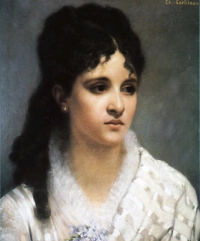
Mélanie Hélène Bonis, known as Mel Bonis (21 January 1858 – 18 March 1937), was a prolific French late-Romantic composer. She wrote more than 300 pieces, including works for piano solo and four hands, organ pieces, chamber music, mélodies, choral music, a mass, and works for orchestra. She attended the Paris Conservatoire, where her teachers included Cesar Franck, Ernest Guiraud, and Auguste Bazille.
Milan Svoboda

Milan Svoboda is one of the leading personalities on the Czech musical scene. He gained international renown as a jazz pianist and band leader. His composing and conducting skills span a wide range of styles, including modern jazz, musicals, film, theater and contemporary classical music.Milan Svoboda was born in 1951 in Prague. He graduated from the organ class at the Prague Conservatory, studied musicology at Charles' University in Prague and composition at the Prague Academy of Music and at the Berklee College of Music, Boston, USA. In 1974 he founded his first jazz orchestra, the PRAGUE BIG BAND, which made a name for itself in the history of both Czech and European jazz.
Leslie Wagle

she is a female musician doing new age arrangements and cover music.
John Philip Sousa

John Philip Sousa (November 6, 1854 – March 6, 1932) was an American composer and conductor of the late Romantic era known particularly for American military and patriotic marches. Because of his mastery of march composition and resultant prominence, he is known as "The March King". In public he was typically referenced by his full name.
Monteverdi

Claudio Giovanni Antonio Monteverdi (May 15, 1567 (baptized) â November 29, 1643), was an Italian composer, gambist, and singer.
Monteverdi's work, often regarded as revolutionary, marked the transition from the music of the Renaissance to that of the Baroque. Enjoying fame in his lifetime, he wrote one of the earliest operas, L'Orfeo, which is still regularly performed.
Monteverdi composed at least eighteen operas, but only L'Orfeo, L'incoronazione di Poppea, Il ritorno d'Ulisse in patria and the famous aria, Lamento, from his second opera L'Arianna have survived. From monody (with melodic lines, intelligible text and placid accompanying music), it was a logical step for Monteverdi to begin composing opera, especially for a dramatically inclined composer who loved grand effect. In 1607, the premiere of his first opera, L'Orfeo, took place in Mantua. It was normal at that time for composers to create works on demand for special occasions, and this piece was part of the ducal celebrations of carnival. (Monteverdi was later to write for the first opera houses supported by ticket sales which opened in Venice). L'Orfeo has dramatic power and lively orchestration and is arguably the first example of a composer assigning specific instruments to parts in operas. It is also one of the first large compositions in which the exact instrumentation of the premiere has come down to us.
Monteverdi's work, often regarded as revolutionary, marked the transition from the music of the Renaissance to that of the Baroque. Enjoying fame in his lifetime, he wrote one of the earliest operas, L'Orfeo, which is still regularly performed.
Monteverdi composed at least eighteen operas, but only L'Orfeo, L'incoronazione di Poppea, Il ritorno d'Ulisse in patria and the famous aria, Lamento, from his second opera L'Arianna have survived. From monody (with melodic lines, intelligible text and placid accompanying music), it was a logical step for Monteverdi to begin composing opera, especially for a dramatically inclined composer who loved grand effect. In 1607, the premiere of his first opera, L'Orfeo, took place in Mantua. It was normal at that time for composers to create works on demand for special occasions, and this piece was part of the ducal celebrations of carnival. (Monteverdi was later to write for the first opera houses supported by ticket sales which opened in Venice). L'Orfeo has dramatic power and lively orchestration and is arguably the first example of a composer assigning specific instruments to parts in operas. It is also one of the first large compositions in which the exact instrumentation of the premiere has come down to us.
Beyonce

Beyoncé Giselle Knowles (born September 4, 1981), commonly known as Beyoncé, is an American R&B singer-songwriter, record producer, and actress. Born and raised in Houston, Texas, she enrolled in various performing arts schools, and was first exposed to singing and dancing competitions as a child. Knowles rose to fame in the late 1990s as the lead singer of R&B girl group Destiny's Child, the best-selling girl group of all time.
In June 2003, after a series of commercial successes with the group, Beyoncé released her debut solo album, Dangerously in Love. The album became one of the most successful albums of that year, spawning the number-one singles "Crazy in Love" and "Baby Boy", and earned Knowles five Grammy Awards in a single night in 2004. The formal disbandment of Destiny's Child in 2005 facilitated her continued success as a solo artist. She released her second album, B'Day in 2006, which spawned the UK number-one singles "Déjà Vu" and "Beautiful Liar", as well as the worldwide hit, "Irreplaceable". Knowles has sold 15 million albums and singles worldwide.
The success of her solo albums has established her as one of the most marketable artists in the industry. However, she has also added acting and endorsement deals to her repertoire. In 2006, she starred alongside Steve Martin and Kevin Kline in the comedy The Pink Panther, and that same year, scored the main role in the film adaptation of the 1981 Broadway musical Dreamgirls, which earned her a Golden Globe nomination. Knowles launched her family's fashion line House of Deréon in 2004, and among her many lucrative commercial deals are Pepsi, Tommy Hilfiger, and L'Oréal. Knowles has been with long-time boyfriend Jay-Z since 2002, though they have been discreet about their relationship. After much speculation, they married on April 4, 2008.
In June 2003, after a series of commercial successes with the group, Beyoncé released her debut solo album, Dangerously in Love. The album became one of the most successful albums of that year, spawning the number-one singles "Crazy in Love" and "Baby Boy", and earned Knowles five Grammy Awards in a single night in 2004. The formal disbandment of Destiny's Child in 2005 facilitated her continued success as a solo artist. She released her second album, B'Day in 2006, which spawned the UK number-one singles "Déjà Vu" and "Beautiful Liar", as well as the worldwide hit, "Irreplaceable". Knowles has sold 15 million albums and singles worldwide.
The success of her solo albums has established her as one of the most marketable artists in the industry. However, she has also added acting and endorsement deals to her repertoire. In 2006, she starred alongside Steve Martin and Kevin Kline in the comedy The Pink Panther, and that same year, scored the main role in the film adaptation of the 1981 Broadway musical Dreamgirls, which earned her a Golden Globe nomination. Knowles launched her family's fashion line House of Deréon in 2004, and among her many lucrative commercial deals are Pepsi, Tommy Hilfiger, and L'Oréal. Knowles has been with long-time boyfriend Jay-Z since 2002, though they have been discreet about their relationship. After much speculation, they married on April 4, 2008.
Arthur de Lulli

Euphemia Allen (1861 - 1949) was a British composer. She composed the tune Chopsticks in 1877 under the pseudonym Arthur de Lulli.
Lam Phuong

Lam Phương, real name Lâm Đình Phùng (March 20, 1937 – December 22, 2020), was a popular Vietnamese songwriter.[1Lam Phương was born in Vĩnh Thanh Vân village, now a part of Rạch Giá, Kiên Giang Province. In the front of his house was a river, and across the river was Thập Phương Temple. As a result, his childhood memories and imagery prominently featured small rowing boats (con đò) ferrying people across the river, the sound of ringing temple bells, and vast rice paddies, which were etched in his mind throughout his life from childhood and later influenced his musical works. As a very young child, he was fascinated by the sound of ringing temple bells.
Mireille (opera)
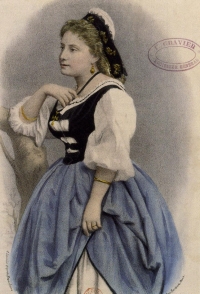
Mireille is an 1864 opera in five acts by Charles Gounod to a French libretto by Michel Carré after Frédéric Mistral's poem Mirèio. The vocal score is dedicated to George V of Hanover.
Tchaikovsky

Pyotr Il'yich Tchaikovsky (May 7 1840 â November 6 1893) was a Russian composer of the Romantic era. While not part of the nationalistic music group known as "The Five", Tchaikovsky wrote music which, in the opinion of Harold Schonberg, was distinctly Russian: plangent, introspective, with modally-inflected melody and harmony.
Aesthetically, Tchaikovsky remained open to all aspects of Saint Petersburg musical life. He was impressed by Serov and Balakirev as well as the classical values upheld by the conservatory. Both the progressive and conservative camps in Russian music at the time attempted to win him over. Tchaikovsky charted his compositional course between these two factions, retaining his individuality as a composer as well as his Russian identity. In this he was influenced by the ideals of his teacher Nikolai Rubinstein and Nikolai's brother Anton.
Tchaikovsky's musical cosmopolitanism led him to be favored by many Russian music-lovers over the "Russian" harmonies and styles of Mussorgsky, Borodin and Rimsky-Korsakov.
Nonetheless he frequently adapted Russian traditional melodies and dance forms in his music, which enhanced his success in his home country. The success in St. Petersburg at the premiere of his Third Orchestral Suite may have been due in large part to his concluding the work with a polonaise. He also used a polonaise for the final movement of his Third Symphony.
Aesthetically, Tchaikovsky remained open to all aspects of Saint Petersburg musical life. He was impressed by Serov and Balakirev as well as the classical values upheld by the conservatory. Both the progressive and conservative camps in Russian music at the time attempted to win him over. Tchaikovsky charted his compositional course between these two factions, retaining his individuality as a composer as well as his Russian identity. In this he was influenced by the ideals of his teacher Nikolai Rubinstein and Nikolai's brother Anton.
Tchaikovsky's musical cosmopolitanism led him to be favored by many Russian music-lovers over the "Russian" harmonies and styles of Mussorgsky, Borodin and Rimsky-Korsakov.
Nonetheless he frequently adapted Russian traditional melodies and dance forms in his music, which enhanced his success in his home country. The success in St. Petersburg at the premiere of his Third Orchestral Suite may have been due in large part to his concluding the work with a polonaise. He also used a polonaise for the final movement of his Third Symphony.
Julie Gold
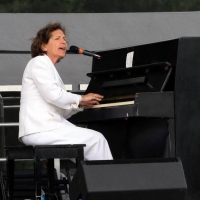
Julie Gold is an American singer-songwriter. She is best known for her musical composition "From a Distance," which became a hit for Bette Midler and won a Grammy Award for Song of the Year in 1991. "From a Distance" has millions of airplays
Msgr. Rudy Villanueva
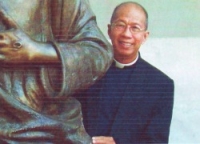
Since Vatican II gave increased importance to music of the local church, Monsignor Rodolfo E. Villanueva, head of Cebu’s Sub-commission on Sacred Music, has been supplying the Vis-Min area with music for the Catholic liturgy. But Cebuanos in general know him simply as Fr. Rudy.
Ordained in 1963, a graduate of Cebu’s San Carlos Major Seminary, he proceeded to Graduate studies in English Literature at Santo Tomas University, and two years after received a scholarship from Serra International, which took him to the State University in Minnesota where he earned a BM in Piano and Master’s in Music Composition. His years as accompanist for the Schola Cantorum at the seminary and for the Pro Musica Antiqua and the composite chorus at University very much shaped his musical interests. Thus, following his studies, he has composed mostly choral and solo vocal music, while coaching quite a few Cebu choral groups. To date, book publications and sound recordings of his music involve singing, while an extended work-in-progress is a theater-piece tentatively called Leon Kilat: A Cebuano Opera.
Ordained in 1963, a graduate of Cebu’s San Carlos Major Seminary, he proceeded to Graduate studies in English Literature at Santo Tomas University, and two years after received a scholarship from Serra International, which took him to the State University in Minnesota where he earned a BM in Piano and Master’s in Music Composition. His years as accompanist for the Schola Cantorum at the seminary and for the Pro Musica Antiqua and the composite chorus at University very much shaped his musical interests. Thus, following his studies, he has composed mostly choral and solo vocal music, while coaching quite a few Cebu choral groups. To date, book publications and sound recordings of his music involve singing, while an extended work-in-progress is a theater-piece tentatively called Leon Kilat: A Cebuano Opera.
Howard Shore

Howard Leslie Shore (born October 18, 1946) is a Canadian composer, notable for his film scores. He has composed the scores for over 40 films, most notably the scores for The Lord of the Rings film trilogy, for which he won three Academy Awards. He is also a consistent collaborator with director David Cronenberg, having scored all but one of his films since 1979. Shore has also worked with Martin Scorsese, Jonathan Demme, David Fincher and many other filmakers.
He has also composed a few concert works including one opera, The Fly, based on the plot (though not his score) of Cronenberg's 1986 film premiered at the Théâtre du Châtelet in Paris on 2 July 2008., a short piece Fanfare for the Wanamaker Organ and the Philadelphia Orchestra, and a short overture for the Swiss 21st Century Symphony Orchestra.
Shore is a three-time winner of the Academy Award, and has also won two Golden Globe Awards and four Grammy Awards. He is the uncle of film composer Ryan Shore.
He has also composed a few concert works including one opera, The Fly, based on the plot (though not his score) of Cronenberg's 1986 film premiered at the Théâtre du Châtelet in Paris on 2 July 2008., a short piece Fanfare for the Wanamaker Organ and the Philadelphia Orchestra, and a short overture for the Swiss 21st Century Symphony Orchestra.
Shore is a three-time winner of the Academy Award, and has also won two Golden Globe Awards and four Grammy Awards. He is the uncle of film composer Ryan Shore.
Enya

Enya (born Eithne Patricia Nà Bhraonáinon May 17, 1961, Gaoth Dobhair, County Donegal, Ireland), sometimes presented in the media as Enya Brennan, is an Irish singer, instrumentalist and composer. She is Ireland's best-selling solo artist and is officially the country's second biggest musical export (after U2). Her works have earned her four Grammy Awards and an Academy Award nomination, and she is also famous for performing in 10 different languages during her lengthy career. Enya is an approximate transcription of how Eithne is pronounced in her native Irish, in the Donegal dialect.
Nami Tamaki

Nami Tamaki (玉置成実 Tamaki Nami) (born June 1, 1988) is a Japanese pop singer known for her youthful age and strong dancing.His career started when he was selected among 5,000 people in the Sony Music Japan Contest in 2003 with the song "Survivor" by Destiny's Child, which he danced to. It has various commercial links with the Japanese anime and game industry; He has also acted in a stage musical and a movie.
Mascagni

Pietro Antonio Stefano Mascagni (December 7, 1863 – August 2, 1945) was an Italian composer most noted for his operas. His 1890 masterpiece Cavalleria rusticana caused one of the greatest sensations in opera history and single-handedly ushered in the Verismo movement in Italian dramatic music. However, though it has been stated that Mascagni, like Leoncavallo, was a "one-opera man" who could never repeat his first success, this is inaccurate. L'amico Fritz and Iris have been popular in Europe since their respective premieres. In fact, Mascagni himself claimed that at one point Iris was performed in Italy more often than Cavalleria (cf. Stivender).
Mascagni wrote a total of seventeen operas and operetta, several orchestral and vocal works, as well as songs and piano music. He enjoyed immense success during his lifetime, both as a composer and conductor of his own and other people's music. If he never repeated the international success of Cavalleria it was probably because Mascagni refused to copy himself. The variety of styles in his operas — the Sicilian passion and warmth of Cavalleria, the exotic flavor of Iris, the idyllic breeze that ventilates the charming L'amico Fritz and Lodoletta, the Gallic chiaroscuro of Isabeau, the steely, Veristic power of Il piccolo Marat, the overripe postromanticism of the lush Parisina — demonstrate a versatility that surpasses even that of Puccini.
Mascagni wrote a total of seventeen operas and operetta, several orchestral and vocal works, as well as songs and piano music. He enjoyed immense success during his lifetime, both as a composer and conductor of his own and other people's music. If he never repeated the international success of Cavalleria it was probably because Mascagni refused to copy himself. The variety of styles in his operas — the Sicilian passion and warmth of Cavalleria, the exotic flavor of Iris, the idyllic breeze that ventilates the charming L'amico Fritz and Lodoletta, the Gallic chiaroscuro of Isabeau, the steely, Veristic power of Il piccolo Marat, the overripe postromanticism of the lush Parisina — demonstrate a versatility that surpasses even that of Puccini.
Alexander Scriabin

Alexander Nikolayevich Scriabin (/skriˈæbɪn/; Russian: Алекса́ндр Никола́евич Скря́бин; 6 January 1872 – 27 April 1915) was a Russian composer and pianist. Scriabin's early work is characterised by a lyrical and idiosyncratic tonal language influenced by Frédéric Chopin. Later in his career, independently of Arnold Schoenberg, Scriabin developed a substantially atonal and much more dissonant musical system, accorded to mysticism. Scriabin was influenced by synesthesia, and associated colors with the various harmonic tones of his atonal scale, while his color-coded circle of fifths was also influenced by theosophy. He is considered by some to be the main Russian Symbolist composer.
Scriabin was one of the most innovative and most controversial of early modern composers. The Great Soviet Encyclopedia said of Scriabin that, "No composer has had more scorn heaped or greater love bestowed..." Leo Tolstoy once described Scriabin's music as "a sincere expression of genius." Scriabin had a major impact on the music world over time, and influenced composers like Roy Agnew, Nikolai Roslavets, Sergei Prokofiev and Igor Stravinsky. Scriabin's importance in the Soviet musical scene, and internationally, drastically declined. "No one was more famous during their lifetime, and few were more quickly ignored after death." In the 1970s, for instance, there were only three recordings of his complete (published) sonatas. Yet Scriabin's work has steadily regained popularity in recent years.
Scriabin was one of the most innovative and most controversial of early modern composers. The Great Soviet Encyclopedia said of Scriabin that, "No composer has had more scorn heaped or greater love bestowed..." Leo Tolstoy once described Scriabin's music as "a sincere expression of genius." Scriabin had a major impact on the music world over time, and influenced composers like Roy Agnew, Nikolai Roslavets, Sergei Prokofiev and Igor Stravinsky. Scriabin's importance in the Soviet musical scene, and internationally, drastically declined. "No one was more famous during their lifetime, and few were more quickly ignored after death." In the 1970s, for instance, there were only three recordings of his complete (published) sonatas. Yet Scriabin's work has steadily regained popularity in recent years.
Gustav Holst

Gustav Theodore Holst (21 September 1874 – 25 May 1934) was an English composer and was a music teacher for nearly 20 years. He is most famous for his orchestral suite The Planets. Having studied at the Royal College of Music in London, his early work was influenced by Ravel, Grieg, Richard Strauss, and fellow student Ralph Vaughan Williams, but most of his music is highly original, with influences from Hindu spiritualism and English folk tunes. Holst's music is well known for unconventional use of metre and haunting melodies.
Holst wrote almost 200 catalogued compositions, including orchestral suites, operas, ballets, concertos, choral hymns, and songs (see Selected works below).
Holst became music master at St Paul's Girls' School in 1905 and director of music at Morley College in 1907, continuing in both posts until retirement.
He was the brother of Hollywood actor Ernest Cossart and father of the composer and conductor Imogen Holst, who wrote a biography of him in 1938.
Holst wrote almost 200 catalogued compositions, including orchestral suites, operas, ballets, concertos, choral hymns, and songs (see Selected works below).
Holst became music master at St Paul's Girls' School in 1905 and director of music at Morley College in 1907, continuing in both posts until retirement.
He was the brother of Hollywood actor Ernest Cossart and father of the composer and conductor Imogen Holst, who wrote a biography of him in 1938.
Lady Gaga

Lady Gaga (born Stefani Joanne Angelina Germanotta on March 28, 1986) is an American recording artist. She began performing in the rock music scene of New York City's Lower East Side. She soon signed with Streamline Records, an imprint of Interscope Records, upon its establishment in 2007. During her early time at Interscope, she worked as a songwriter for fellow label artists and captured the attention of Akon, who recognized her vocal abilities, and had her also sign to his own label, Kon Live Distribution.
Her debut album, The Fame, was released on August 19, 2008. In addition to receiving generally positive reviews, it reached number-one in Canada, Austria, Germany, and Ireland and topped the Billboard Top Electronic Albums chart. Its first two singles, "Just Dance" and "Poker Face", co-written and co-produced with RedOne, became international number-one hits, topping the Hot 100 in the United States as well as other countries. The album later earned a total of six Grammy Award nominations and won awards for Best Electronic/Dance Album and Best Dance Recording. In early 2009, after having opened for New Kids on the Block and the Pussycat Dolls, she embarked on her first headlining tour, The Fame Ball Tour. By the fourth quarter of 2009, she released her second studio album The Fame Monster, with the global chart-topping lead single "Bad Romance", as well as having embarked on her second headlining tour of the year, The Monster Ball Tour.
Lady Gaga is inspired by glam rock musicians such as David Bowie and Freddie Mercury, as well as pop music artists such as Madonna and Michael Jackson. She has also stated fashion is a source of inspiration for her songwriting and performances. To date, she has sold over eight million albums and over thirty-five million singles worldwide.
Her debut album, The Fame, was released on August 19, 2008. In addition to receiving generally positive reviews, it reached number-one in Canada, Austria, Germany, and Ireland and topped the Billboard Top Electronic Albums chart. Its first two singles, "Just Dance" and "Poker Face", co-written and co-produced with RedOne, became international number-one hits, topping the Hot 100 in the United States as well as other countries. The album later earned a total of six Grammy Award nominations and won awards for Best Electronic/Dance Album and Best Dance Recording. In early 2009, after having opened for New Kids on the Block and the Pussycat Dolls, she embarked on her first headlining tour, The Fame Ball Tour. By the fourth quarter of 2009, she released her second studio album The Fame Monster, with the global chart-topping lead single "Bad Romance", as well as having embarked on her second headlining tour of the year, The Monster Ball Tour.
Lady Gaga is inspired by glam rock musicians such as David Bowie and Freddie Mercury, as well as pop music artists such as Madonna and Michael Jackson. She has also stated fashion is a source of inspiration for her songwriting and performances. To date, she has sold over eight million albums and over thirty-five million singles worldwide.
John McFarlane
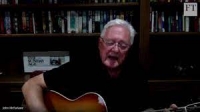
His arrangements for symphony orchestra of two piano pieces by Chopin and and Rachmaninov have been played under the auspices of the Scarbo ...
Depeche Mode

Depeche Mode (IPA: , də-PESH) are an English electronic band who formed in 1980, in Basildon, Essex. The group's original line-up consisted of Dave Gahan (lead vocals), Martin Gore (keyboards, guitar, vocals, chief songwriter after 1981), Andrew Fletcher (keyboards) and Vince Clarke (keyboards, chief songwriter 1980–81). Vince Clarke left the band after the release of their 1981 debut album, and was replaced by Alan Wilder (keyboards, drums, production) with Gore taking over songwriting. Wilder left the band in 1995 and since then Gahan, Gore, and Fletcher have continued as a trio.
Depeche Mode are one of the most successful, longest-lived bands from the early 1980s. They have had forty-five songs in the UK Singles Chart and #1 albums in UK, US and throughout Europe. According to EMI, Depeche Mode have sold over 75 million albums worldwide, as part of total worldwide record sales (including singles) in excess of 100 million.
Depeche Mode are one of the most successful, longest-lived bands from the early 1980s. They have had forty-five songs in the UK Singles Chart and #1 albums in UK, US and throughout Europe. According to EMI, Depeche Mode have sold over 75 million albums worldwide, as part of total worldwide record sales (including singles) in excess of 100 million.
Felix Mendelssohn

Jakob Ludwig Felix Mendelssohn Bartholdy, born, and generally known in English-speaking countries, as Felix Mendelssohn (February 3, 1809 – November 4, 1847) was a German composer, pianist, organist and conductor of the early Romantic period.
The grandson of the philosopher Moses Mendelssohn, he was born into a notable Jewish family, although he himself was brought up initially without religion, and later as a Lutheran. He was recognized early as a musical prodigy, but his parents were cautious and did not seek to capitalise on his abilities. Indeed his father was disinclined to allow Felix to follow a musical career until it became clear that he intended to seriously dedicate himself to it.
Early success in Germany was followed by travel throughout Europe; Mendelssohn was particularly well received in England as a composer, conductor and soloist, and his ten visits there, during which many of his major works were premiered, form an important part of his adult career. His essentially conservative musical tastes however set him apart from many of his more adventurous musical contemporaries such as Liszt, Wagner and Berlioz. The Conservatory he founded at Leipzig became a bastion of this anti-radical outlook.
Mendelssohn's work includes symphonies, concerti, oratorios, piano and chamber music. He also had an important role in the revival of interest in the music of Johann Sebastian Bach. After a long period of relative denigration due to changing musical tastes and antisemitism in the late 19th and early 20th centuries, his creative originality is now being recognized and re-evaluated. He is now among the most popular composers of the Romantic era.
The grandson of the philosopher Moses Mendelssohn, he was born into a notable Jewish family, although he himself was brought up initially without religion, and later as a Lutheran. He was recognized early as a musical prodigy, but his parents were cautious and did not seek to capitalise on his abilities. Indeed his father was disinclined to allow Felix to follow a musical career until it became clear that he intended to seriously dedicate himself to it.
Early success in Germany was followed by travel throughout Europe; Mendelssohn was particularly well received in England as a composer, conductor and soloist, and his ten visits there, during which many of his major works were premiered, form an important part of his adult career. His essentially conservative musical tastes however set him apart from many of his more adventurous musical contemporaries such as Liszt, Wagner and Berlioz. The Conservatory he founded at Leipzig became a bastion of this anti-radical outlook.
Mendelssohn's work includes symphonies, concerti, oratorios, piano and chamber music. He also had an important role in the revival of interest in the music of Johann Sebastian Bach. After a long period of relative denigration due to changing musical tastes and antisemitism in the late 19th and early 20th centuries, his creative originality is now being recognized and re-evaluated. He is now among the most popular composers of the Romantic era.
Domenico Scarlatti

Giuseppe Domencio Scarlatti, Madrid, Spain. An Italian composer who has spent most of his life in Spain and Portugal. Although he lived in the Baroque period, his music mostly influenced the classical period.
Aaron Copland

Aaron Copland (/ˈkoʊplənd/, KOHP-lənd; November 14, 1900 – December 2, 1990) was an American composer, composition teacher, writer, and later a conductor of his own and other American music. Copland was referred to by his peers and critics as "the Dean of American Composers". The open, slowly changing harmonies in much of his music are typical of what many people consider to be the sound of American music, evoking the vast American landscape and pioneer spirit.
Real Book

The Real Book refers to compilations of lead sheets for jazz standards. It usually refers to the first volume of a series of books transcribed and collated by Berklee College of Music students during the 1970s.The name is derived from "fake books", so called because they contained only rough outlines of music pieces rather than fully notated scores. Early fake books were often used by professional bands who performed mostly standards, often more geared to society and dance bands rather than jazz ensembles, and devoted much space to show tunes, novelty tunes, traditional jazz, etc. The first three Real Book volumes, in contrast, contained many bebop and other jazz standards that were likely to be encountered on jazz gigs at the time. For this reason, the books were quickly adopted among jazz players in the 1970s, particularly on the east coast.
Freddie Hubbard

Frederick Dewayne "Freddie" Hubbard (April 7, 1938 – December 29, 2008) was an American jazz trumpeter. He was known primarily for playing in the bebop, hard bop and post bop styles from the early 1960s and on. His unmistakable and influential tone contributed to new perspectives for modern jazz and bebop.
Rod Stewart

Sir Roderick David Stewart CBE (born 10 January 1945) is a British rock singer and songwriter. Born and raised in London, he is of Scottish and English ancestry. Stewart is one of the best-selling music artists of all time, having sold over 120 million records worldwide. He has had nine number-one albums in the UK Albums Chart and his tally of 62 UK hit singles includes 31 that reached the top ten, six of which gained the #1 position. Stewart has had 16 top ten singles in the US, with four reaching #1 on the Billboard Hot 100. He was knighted in the 2016 Birthday Honours for services to music and charity.
Coldplay

Coldplay are a rock band formed in London, England in 1997. The group comprises vocalist/pianist/guitarist Chris Martin, lead guitarist Jonny Buckland, bassist Guy Berryman, and drummer/multi-instrumentalist Will Champion. Coldplay have sold 34.6 million albums, and are also known for their hit singles, such as "Yellow", "The Scientist", "Speed of Sound", "Fix You", "Viva la Vida" and the Grammy Award-winning "Clocks".
Coldplay achieved worldwide fame with the release of their single "Yellow", followed by their debut album, Parachutes (2000), which was nominated for the Mercury Prize. Its follow-up, A Rush of Blood to the Head (2002) won multiple awards such as NME's Album of the Year and was later included on Rolling Stone magazine's 500 Greatest Albums of All Time list, ranking at #473. Their next release, X&Y (2005), received a slightly less enthusiastic yet still generally positive reception. The band's fourth studio album, Viva la Vida or Death and All His Friends (2008), was produced by Brian Eno and released again to largely favourable reviews. All of Coldplay's albums have enjoyed great commercial success.
Coldplay's early material was compared to acts such as Jeff Buckley, U2, and Travis. Coldplay have been an active supporter of various social and political causes, such as Oxfam's Make Trade Fair campaign and Amnesty International. The group have also performed at various charity projects such as Band Aid 20, Live 8, and the Teenage Cancer Trust.
Coldplay achieved worldwide fame with the release of their single "Yellow", followed by their debut album, Parachutes (2000), which was nominated for the Mercury Prize. Its follow-up, A Rush of Blood to the Head (2002) won multiple awards such as NME's Album of the Year and was later included on Rolling Stone magazine's 500 Greatest Albums of All Time list, ranking at #473. Their next release, X&Y (2005), received a slightly less enthusiastic yet still generally positive reception. The band's fourth studio album, Viva la Vida or Death and All His Friends (2008), was produced by Brian Eno and released again to largely favourable reviews. All of Coldplay's albums have enjoyed great commercial success.
Coldplay's early material was compared to acts such as Jeff Buckley, U2, and Travis. Coldplay have been an active supporter of various social and political causes, such as Oxfam's Make Trade Fair campaign and Amnesty International. The group have also performed at various charity projects such as Band Aid 20, Live 8, and the Teenage Cancer Trust.
Ruggiero Giovanelli

Ruggiero Giovannelli was an Italian composer of the late Renaissance and early Baroque eras. He was a member of the Roman School, and succeeded Palestrina at St. Peter's.
Music theory

Music theory is the study of the practices and possibilities of music. The Oxford Companion to Music describes three interrelated uses of the term "music theory"
Manoling Francisco, SJ

Manuel Simplicio Valdes Francisco was born and raised in QuezonCity, Philippines, on Feb. 26, 1965.
Leroy Anderson
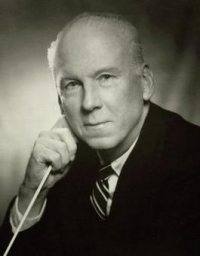
Leroy Anderson (/ləˈrɔɪ/ ~ le-roy, not "lee-roy"; June 29, 1908 – May 18, 1975) was an American composer of short, light concert pieces, many of which were introduced by the Boston Pops Orchestra under the direction of Arthur Fiedler. John Williams described him as "one of the great American masters of light orchestral music."
Bob Dylan

Bob Dylan (born Robert Allen Zimmerman, May 24, 1941 in Duluth, Minnesota) is an American singer-songwriter, author, poet and disc jockey, who has been a major figure in popular music for five decades. Much of Dylan's most celebrated work dates from the 1960s, when he became an informal chronicler and a reluctant figurehead of American unrest. A number of his songs, such as "Blowin' in the Wind" and "The Times They Are a-Changin'",
Dylan's early lyrics incorporated politics, social commentary, philosophy and literary influences, defying existing pop music conventions and appealing widely to the counterculture. While expanding and personalizing musical styles, he has shown steadfast devotion to many traditions of American song, from folk, blues and country to gospel, rock and roll and rockabilly to English, Scottish and Irish folk music, and even jazz and swing.
Dylan performs with the guitar, piano and harmonica. Backed by a changing line-up of musicians, he has toured steadily since the late 1980s on what has been dubbed the "Never Ending Tour." Although his accomplishments as performer and recording artist have been central to his career, his songwriting is generally regarded as his greatest contribution.
During his career, Dylan has won many awards for his songwriting, performing, and recording. His records have earned Grammy, Golden Globe, and Academy Awards, and he has been inducted into the Rock and Roll Hall of Fame, Nashville Songwriters Hall of Fame and Songwriters Hall of Fame. In 1999, Dylan was included in the Time 100: The Most Important People of the Century, and in 2004, he was ranked number two in Rolling Stone magazine's list of "Greatest Artists of All Time."
In 2008, Dylan was awarded a Pulitzer Prize Special Citation for his "profound impact on popular music and American culture, marked by lyrical compositions of extraordinary poetic power."
Dylan's early lyrics incorporated politics, social commentary, philosophy and literary influences, defying existing pop music conventions and appealing widely to the counterculture. While expanding and personalizing musical styles, he has shown steadfast devotion to many traditions of American song, from folk, blues and country to gospel, rock and roll and rockabilly to English, Scottish and Irish folk music, and even jazz and swing.
Dylan performs with the guitar, piano and harmonica. Backed by a changing line-up of musicians, he has toured steadily since the late 1980s on what has been dubbed the "Never Ending Tour." Although his accomplishments as performer and recording artist have been central to his career, his songwriting is generally regarded as his greatest contribution.
During his career, Dylan has won many awards for his songwriting, performing, and recording. His records have earned Grammy, Golden Globe, and Academy Awards, and he has been inducted into the Rock and Roll Hall of Fame, Nashville Songwriters Hall of Fame and Songwriters Hall of Fame. In 1999, Dylan was included in the Time 100: The Most Important People of the Century, and in 2004, he was ranked number two in Rolling Stone magazine's list of "Greatest Artists of All Time."
In 2008, Dylan was awarded a Pulitzer Prize Special Citation for his "profound impact on popular music and American culture, marked by lyrical compositions of extraordinary poetic power."
Bach

Johann Sebastian Bach (31 March 1685 – 28 July 1750) was a German composer and organist whose sacred and secular works for choir, orchestra, and solo instruments drew together the strands of the Baroque period and brought it to its ultimate maturity. Although he introduced no new forms, he enriched the prevailing German style with a robust contrapuntal technique, an unrivalled control of harmonic and motivic organisation in composition for diverse musical forces, and the adaptation of rhythms and textures from abroad, particularly Italy and France.
Revered for their intellectual depth and technical and artistic beauty, Bach's works include the Brandenburg concertos; the Goldberg Variations; the English Suites, French Suites, Partitas, and Well-Tempered Clavier; the Mass in B Minor; the St. Matthew Passion; the St. John Passion; The Musical Offering; The Art of Fugue; the Sonatas and Partitas for violin solo; the Cello Suites; more than 200 surviving cantatas; and a similar number of organ works, including the celebrated Toccata and Fugue in D Minor.
While Bach's fame as an organist was great during his lifetime, he was not particularly well-known as a composer. His adherence to Baroque forms and contrapuntal style was considered "old-fashioned" by his contemporaries, especially late in his career when the musical fashion tended towards Rococo and later Classical styles. A revival of interest and performances of his music began early in the 19th century, and he is now widely considered to be one of the greatest composers in the Western tradition.
Revered for their intellectual depth and technical and artistic beauty, Bach's works include the Brandenburg concertos; the Goldberg Variations; the English Suites, French Suites, Partitas, and Well-Tempered Clavier; the Mass in B Minor; the St. Matthew Passion; the St. John Passion; The Musical Offering; The Art of Fugue; the Sonatas and Partitas for violin solo; the Cello Suites; more than 200 surviving cantatas; and a similar number of organ works, including the celebrated Toccata and Fugue in D Minor.
While Bach's fame as an organist was great during his lifetime, he was not particularly well-known as a composer. His adherence to Baroque forms and contrapuntal style was considered "old-fashioned" by his contemporaries, especially late in his career when the musical fashion tended towards Rococo and later Classical styles. A revival of interest and performances of his music began early in the 19th century, and he is now widely considered to be one of the greatest composers in the Western tradition.
Dr.NG
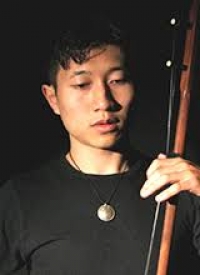
Shaun Ng has established himself as one of the most versatile early musicians in Australia, performing on the instruments of the violin, viola da gamba and lute ...
Sperion

Sperion Musician/band. Anime / Game / J-Drama / Japanese popular music and soundtrack transcriber / arranger.
Art Tatum

Arthur "Art" Tatum Jr. (October 13, 1909 – November 5, 1956) was an American jazz pianist and virtuoso. He was nearly blind.
Tatum is widely acknowledged as one of the greatest jazz pianists of all time. Critic Scott Yanow wrote, "Tatum's quick reflexes and boundless imagination kept his improvisations filled with fresh (and sometimes futuristic) ideas that put him way ahead of his contemporaries ... Art Tatum's recordings still have the ability to scare modern pianists."
Tatum is widely acknowledged as one of the greatest jazz pianists of all time. Critic Scott Yanow wrote, "Tatum's quick reflexes and boundless imagination kept his improvisations filled with fresh (and sometimes futuristic) ideas that put him way ahead of his contemporaries ... Art Tatum's recordings still have the ability to scare modern pianists."
Frederic Mesnier

Frédéric Mesnier is a french guitarist and composer, born in 1961. ... Self-taught, he discovers the instrument at 14, working with the tablatures of Marcel Dadi, the beloved French picker. Later he turns to the classical repertoire.
Super Mario Galaxy

Super Mario Galaxy is a 2007 platform action-adventure video game developed and published by Nintendo for the Wii, and the third 3D game in the Super Mario series. As Mario or Luigi, the player embarks on a quest to rescue Princess Peach, save the universe from Bowser, and collect 121 Power Stars. The levels in the game consist of galaxies filled with minor planets and worlds, with different variations of gravity, the central element of gameplay. The player character is controlled using the Wii Remote and Nunchuk, and completes missions, fights bosses, and reaches certain areas to collect Power Stars. Certain levels use the motion-based Wii Remote functions.
Carl Orff

Carl Orff (July 10, 1895 – March 29, 1982) was a 20th-century German composer, best known for his cantata Carmina Burana (1937). In addition to his career as a composer, Orff developed an influential method of music education for children.
Orff is most known for Carmina Burana (1937), a "scenic cantata". It is the first of a trilogy that also includes Catulli Carmina and Trionfo di Afrodite. Carmina Burana reflected his interest in medieval German poetry. Together the trilogy is called Trionfi, or "Triumphs". The composer described it as the celebration of the triumph of the human spirit through sexual and holistic balance. The work was based on thirteenth-century poetry found in a manuscript dubbed the Codex latinus monacensis found in the Benedictine monastery of Benediktbeuern in 1803 and written by the Goliards; this collection is also known as Carmina Burana. While "modern" in some of his compositional techniques, Orff was able to capture the spirit of the medieval period in this trilogy, with infectious rhythms and easy tonalities. The medieval poems, written in Latin and an early form of German, are often racy, but without descending into smut. "Fortuna Imperatrix Mundi", commonly known as "O Fortuna", from Carmina Burana is often used to denote primal forces, for example in the Oliver Stone movie The Doors.. The work's association with fascism also led Pier Paolo Pasolini to use the movement "Veris Leta Facies" to accompany the concluding scenes of torture and murder in his final film Salò, or the 120 Days of Sodom.
With the success of Carmina Burana, Orff disowned all of his previous works except for Catulli Carmina and the Entrata (an orchestration of "The Bells" by William Byrd (1539–1623)), which were rewritten until acceptable by Orff. As an historical aside, Carmina Burana is probably the most famous piece of music composed and premiered in Nazi Germany. Carmina Burana was in fact so popular that Orff received a commission in Frankfurt to compose incidental music for A Midsummer Night's Dream, which was supposed to replace the banned music by Mendelssohn. After the war, he claimed not to be satisfied with the music and reworked it into the final version that was first performed in 1964.
Orff is most known for Carmina Burana (1937), a "scenic cantata". It is the first of a trilogy that also includes Catulli Carmina and Trionfo di Afrodite. Carmina Burana reflected his interest in medieval German poetry. Together the trilogy is called Trionfi, or "Triumphs". The composer described it as the celebration of the triumph of the human spirit through sexual and holistic balance. The work was based on thirteenth-century poetry found in a manuscript dubbed the Codex latinus monacensis found in the Benedictine monastery of Benediktbeuern in 1803 and written by the Goliards; this collection is also known as Carmina Burana. While "modern" in some of his compositional techniques, Orff was able to capture the spirit of the medieval period in this trilogy, with infectious rhythms and easy tonalities. The medieval poems, written in Latin and an early form of German, are often racy, but without descending into smut. "Fortuna Imperatrix Mundi", commonly known as "O Fortuna", from Carmina Burana is often used to denote primal forces, for example in the Oliver Stone movie The Doors.. The work's association with fascism also led Pier Paolo Pasolini to use the movement "Veris Leta Facies" to accompany the concluding scenes of torture and murder in his final film Salò, or the 120 Days of Sodom.
With the success of Carmina Burana, Orff disowned all of his previous works except for Catulli Carmina and the Entrata (an orchestration of "The Bells" by William Byrd (1539–1623)), which were rewritten until acceptable by Orff. As an historical aside, Carmina Burana is probably the most famous piece of music composed and premiered in Nazi Germany. Carmina Burana was in fact so popular that Orff received a commission in Frankfurt to compose incidental music for A Midsummer Night's Dream, which was supposed to replace the banned music by Mendelssohn. After the war, he claimed not to be satisfied with the music and reworked it into the final version that was first performed in 1964.
Edward German
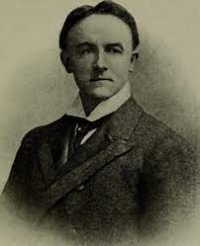
Sir Edward German was an English musician and composer of Welsh descent, best remembered for his extensive output of incidental music for the stage and as a successor to Arthur Sullivan in the field of English comic opera. Some of his light operas, especially Merrie England, are still performed.
Thad Jones
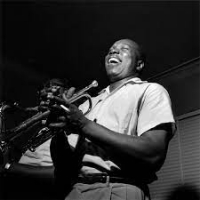
Thaddeus Joseph Jones was an American jazz trumpeter, composer, and bandleader who has been called "one of the all-time greatest jazz trumpet soloists".
Franz Liszt

Franz Liszt (Hungarian: Ferencz Liszt, in modern usage Ferenc Liszt, from 1859 to 1865 officially Franz Ritter von Liszt) (October 22, 1811 – July 31, 1886) was a Hungarian composer, virtuoso pianist and teacher. He was also the father-in-law of Richard Wagner. In 1865 he became abbot in the Roman Catholic Church.
Liszt became renowned throughout Europe during the 19th century for his great skill as a performer. He was said by his contemporaries to have been the most technically advanced pianist of his age and perhaps the greatest pianist of all time. He was also an important and influential composer, a notable piano teacher, a conductor who contributed significantly to the modern development of the art, and a benefactor to other composers and performers, notably Richard Wagner, Hector Berlioz, Camille Saint-Saëns, Edvard Grieg and Alexander Borodin.
As a composer, Liszt was one of the most prominent representatives of the "Neudeutsche Schule" ("New German School"). He left behind a huge and diverse body of work, in which he influenced his forward-looking contemporaries and anticipated some 20th-century ideas and trends. Some of his most notable contributions were the invention of the symphonic poem, developing the concept of thematic transformation as part of his experiments in musical form and making radical departures in harmony.
Liszt became renowned throughout Europe during the 19th century for his great skill as a performer. He was said by his contemporaries to have been the most technically advanced pianist of his age and perhaps the greatest pianist of all time. He was also an important and influential composer, a notable piano teacher, a conductor who contributed significantly to the modern development of the art, and a benefactor to other composers and performers, notably Richard Wagner, Hector Berlioz, Camille Saint-Saëns, Edvard Grieg and Alexander Borodin.
As a composer, Liszt was one of the most prominent representatives of the "Neudeutsche Schule" ("New German School"). He left behind a huge and diverse body of work, in which he influenced his forward-looking contemporaries and anticipated some 20th-century ideas and trends. Some of his most notable contributions were the invention of the symphonic poem, developing the concept of thematic transformation as part of his experiments in musical form and making radical departures in harmony.
Apocalyptica

Apocalyptica is a Finnish cello metal band, composed of classically trained cellists and, since 2005, a drummer. Three of the cellists are graduates of the Sibelius Academy in Helsinki, Finland. Their music features elements from classical music, neo-classical metal, thrash metal, and symphonic metal.
Kentaro Sato

Kentaro Sato (佐藤 賢太郎, Satō Kentarō, born 12 May 1981), aka Ken-P, is a composer/conductor/orchestrator/clinician of media music (Film/TV/Game) and concert music (Symphonic and Choral). His works have been broadcast, performed, and recorded in North and South America, Asia, and Europe by well-known groups including the London Symphony Orchestra, Philharmonia Orchestra and Sydney Symphony Orchestra. In 2005, he was appointed a resident composer/assistant conductor of the Torrance Symphony. He is also a frequent guest conductor and lecturer for various workshops and reading sessions on choral music and composition/orchestration around the world.
George Dandelot
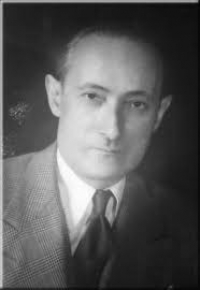
Georges Édouard Dandelot (2 December 1895 – 17 August 1975) was a French composer and teacher.Dandelot was born in Paris. His father was Alfred Dandelot, and his mother was the daughter of a piano maker. Dandelot studied at the Paris Conservatory under Émile Schwartz, Louis Diémer, Xavier Leroux, Jean Gallon, Georges Caussade, Charles-Marie Widor, Vincent d'Indy, Maurice Emmanuel, Paul Dukas, and Albert Roussel. After serving in World War I, he began teaching piano in 1919 at the École Normale de Musique de Paris; from 1942 he taught harmony at the Paris Conservatory, and published treatises on solfege and harmony. Among his pupils were composers Paul Méfano, Michel Perrault, Rodica Sutzu, and Michel Philippot. See: List of music students by teacher: C to F#Georges Dandelot.He died in Saint-Georges-de-Didonne, Charente-Maritime.
Zetsuai
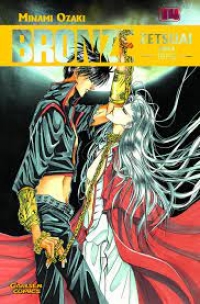
Zetsuai 1989 is a Japanese yaoi manga known for its melodramatic, almost operatic plot, its "semi-insane characters", and for the controversial style of its artwork. The word "Zetsu-ai" is a compound created by Minami Ozaki which has been translated as "desperate love"
Avraham Fried

Avraham Shabsi Hakohen Friedman better known by his stage name, Avraham Fried, is a popular musical entertainer in the Orthodox Jewish community.
 Sheet Music Exchange is a web site for those who wants to access popular sheet music easily,
letting them download the sheet music for free for trial purposes.
It's completely free to download and try the listed sheet music, but you have to delete the files after 24 hours of trial period.
Don't forget, if you like the piece of music you have just learned playing,
treat the artist with respect, and go buy the original sheet music.
Sheet Music Exchange is a web site for those who wants to access popular sheet music easily,
letting them download the sheet music for free for trial purposes.
It's completely free to download and try the listed sheet music, but you have to delete the files after 24 hours of trial period.
Don't forget, if you like the piece of music you have just learned playing,
treat the artist with respect, and go buy the original sheet music.

